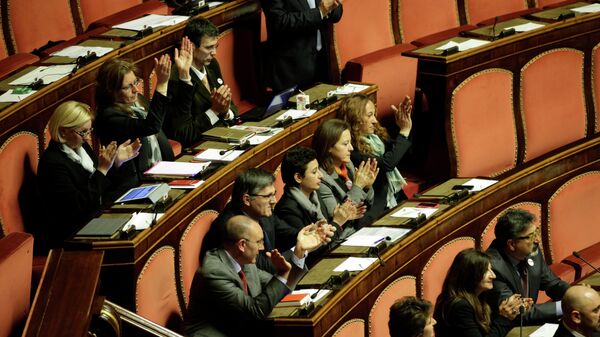"The decision of joining the EU was never endorsed by a popular referendum, in Italy and in many other countries… All those decisions should be taken by the people in referenda," Paolo Bernadini, founding member of the Independence Veneta party, said on Friday.
According to Bernadini, the best path for Italy is to become independent from the European Union "as soon as possible."
Among other European states, the 2010 Eurozone crisis had an adverse effect on Italy, which ran a budget deficit and a national debt almost equaling to 120 percent of its GDP.
The following year, a series of unpopular austerity measures were introduced nationwide to stabilize the country's economy reeling from the downgrading of its credit rating and a decline in international investments.




